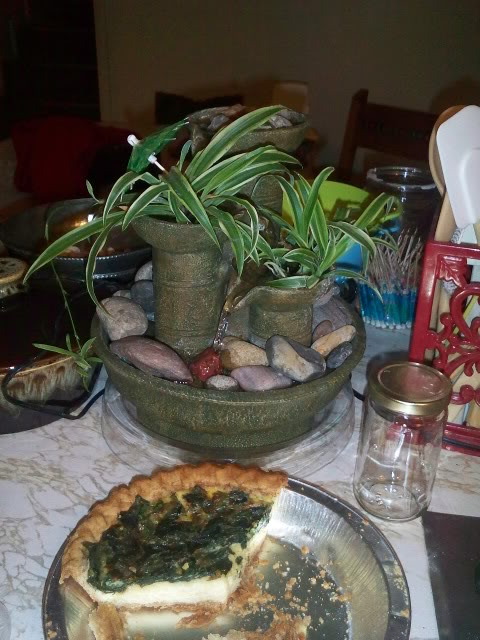Don't call things "Junk"
"When things are defined junk or trash or worthless, especially by
parents, especially to their unschooled children, then freedom and
free choices aren't going to be available. How can children think
for themselves when things are pre-decided and pre-labelled good and
bad and junk and trash?"
Sometimes a parent tells a child that his collection is junk. "Get rid of this junk."
Sometimes a parent tells a child that a video he is watching, or that music he likes, is junk.
Usually, it's food. Parents will condemn a child's preferences, or insult the child in way of saying no about what he has asked for. "You don't need that junk."
Later in the same post linked above as "When things are defined junk..." I wrote this, and it's crucial to creating a peaceful unschooling nest, and to becoming a worthy, trustworthy unschooling parent:
I'm defending careful thought,
compassion for children, and those things that help unschooling work
as well as it can.

Heather Booth wrote:One of the things that helped when I started unschooling was becoming aware of the words I used. The clearer I became in my thoughts and the more aware of the impact of my words, the better I was at being an unschooling parent.
. . . .
"Read a little, try a little, wait a while, watch" and "Say yes more" are great phrases to get you going in the right direction but if you are still saying "have to" or "junk food " or "screen time" then you're stuck in negative thoughts. —Heather Booth
Weed Away Words
photo by Sandra Dodd
|
Sandra:For the purposes of the discussion on this list it helps for people
not to use that term. If someone defines some food as "junk food"
that is keeping them from thinking clearly just as having a pair of
glasses with a landscape already painted on them would keep them from
seeing clearly. (original)
Schuyler Waynforth:It will help a lot if you don't separate food from food by labelling it junk or healthy. Dentists frown on apples and pears and other fruits because of the sugar and the acids. Do you want to think about food in those ways? Or once was labelled as a carcinogen and now is being demonstrated to be good for you like coffee and chocolate and wine? Or by color, white versus green versus brown versus red versus yellow? It's all food. It's what you are hungry for that matters. If Linnaea or Simon ask for food I will narrow it down by asking sweet versus savoury or quick versus cooked or a platter versus a specific request. I don't ever say junk versus healthy. I don't think I even think in those terms.
Today Linnaea and I made beet ice cream. Is that junk food or is it healthy? What about carrot cake, or oatmeal chocolate chip cookies, or beet brownies?
I've been making these really weird pancakes lately from Kenny Shopsin's cookbook; mac and cheese pancakes and Slutty cakes which have a center of pumpkin and peanut butter mixed together with pumpkin pie spice. They are so yummy. In the cookbook he writes:
"Anybody who is tempted to question my use of frozen pancake batter might want to stop and think about what pancakes really are. They are flour and milk drowned in butter and some form of sugar. They're crap. As far as food value, you might as well take Crisco, whip it up with powdered sugar and spread it on your face. I am not saying they're not delicious or that you shouldn't eat them, but they're a luxury, a recreation, like smoking marijuana or having sex."
I don't think pancakes would have ever fallen into a category of junk food for me. It's fun to read someone else's take. He has this interesting theory about why people stop eating certain foods when they are full, foods they really enjoy and click with, but with foods that they feel obligated to eat, like salads, they keep eating and eating and eating, they never click. I like Kenny Shopsin.
Schuyler W.
Someone wrote:Why put useless junk into our bodies when the world is full of nutritious food?
My merry response:
Oh, well... when you put it THAT way... 😃
Anytime questions are asked in tricky, entrapping ways, it's more rhetoric than communication.
When one divides all the world of food into two distinct groups, nutritious and "useless junk," then life must be very easy! (original)
But learning, and unschooling, will NOT be easy. So we kept on making that point.
[Same post, lower down:]
Using terms like "real" and "junk" don't lead toward clarity and knowledge (not for your kids, not for you).
—Sandra
Focus, Hobbies, Obsessions
 Negativity
(Avoidance of)
Negativity
(Avoidance of)
The Full Plate Club  Problem with "junk food"
Problem with "junk food"


 Negativity
(Avoidance of)
Negativity
(Avoidance of)